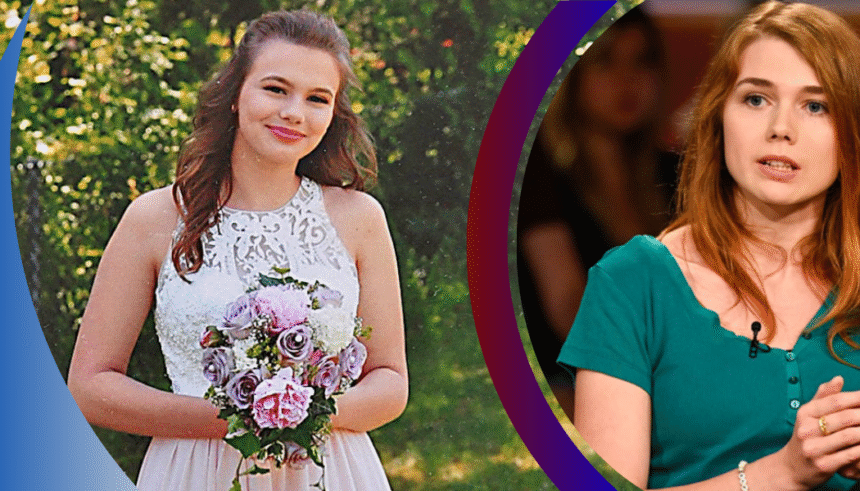The disappearance of Rebecca Reusch remains one of Germany’s most haunting missing person cases. Since 2019, the story of the 15-year-old girl who vanished without a trace from Berlin has gripped the public, with every new detail sparking fresh speculation. In recent years, a phrase has circulated widely in online discussions and social media: “Rebecca Reusch Schwester lügt”, which translates to “Rebecca Reusch’s sister is lying.”
But what exactly does this mean — and where does it come from?
Who Was Rebecca Reusch?
Rebecca Reusch was a 15-year-old student from Berlin who went missing on February 18, 2019. She had spent the night before at her sister’s home in the Berlin district of Britz. The next morning, she was reportedly last seen at the house — and then disappeared without any trace.
Her disappearance triggered one of the largest search operations in German history. Police scoured forests, lakes, and highways, and the case became a top headline across Europe. Yet, despite years of investigation, no concrete evidence of her fate has ever been found.
The Role of the Sister and Brother-in-Law
Rebecca had stayed overnight at her sister Vivien’s home, where Vivien lived with her husband, Florian R. The next morning, when Rebecca was supposed to go to school, she vanished. According to Vivien, Rebecca left the house around 7 a.m. to go to class.
However, inconsistencies in the statements of the family — particularly regarding the brother-in-law’s actions that morning — soon caught investigators’ attention. Police eventually named Florian R., Rebecca’s brother-in-law, as a primary suspect.
Investigators claimed that his car had been seen driving toward Brandenburg (a rural area outside Berlin) during the period Rebecca went missing — an area that was later heavily searched by police.
Why People Say “Rebecca Reusch Schwester lügt”
The phrase “Rebecca Reusch Schwester lügt” (Rebecca Reusch’s sister lies) emerged online from public skepticism toward Vivien’s statements. Many observers found contradictions in her early interviews and believed she might have withheld information to protect her husband.
Some of the alleged inconsistencies included:
- The timeline of when Rebecca supposedly left the house.
- Conflicting accounts of who was awake that morning.
- Vivien’s public defense of her husband, despite police suspicion.
While there is no verified evidence proving that Rebecca’s sister lied, the media and public debate around her statements created an atmosphere of doubt. Internet forums, YouTube discussions, and social media comments amplified these suspicions — giving rise to conspiracy theories and harsh online criticism.
What the Police Actually Said
Despite the public speculation, investigators have never accused Vivien of lying or obstruction. Their main focus has always been her husband, Florian.
Florian was arrested briefly in 2019 but was later released due to lack of evidence. The case remains officially unsolved, and Rebecca is still listed as a missing person.
German police have stated multiple times that they do not suspect the sister of involvement, though they have acknowledged inconsistencies in the family’s statements — a common occurrence in high-stress investigations.
Media Sensation and Online Backlash
The Rebecca Reusch case attracted immense media attention in Germany. News outlets covered every new detail, from surveillance footage to the family’s interviews.
Unfortunately, this constant coverage also fueled online harassment and false narratives. The phrase “Schwester lügt” became part of a larger pattern of public judgment, where internet users acted as “online detectives,” drawing conclusions without verified facts.
This phenomenon reflects a growing issue in true-crime culture — the tendency to publicly speculate about victims and families before evidence is confirmed.
Where the Case Stands Today
As of 2025, the disappearance of Rebecca Reusch remains a mystery. There have been no new major breakthroughs since 2021, when police conducted renewed searches in Brandenburg.
Her family continues to hope that Rebecca is alive, though most investigators now believe it is unlikely. The case is still open, and authorities occasionally re-examine leads or tips.
Despite the years that have passed, Rebecca’s story continues to capture the public’s imagination — both as a tragic mystery and as a cautionary tale about how online speculation can distort real investigations.
A Reminder: Presumption of Innocence
While many people continue to discuss whether “Rebecca Reusch’s sister lied,” it is important to emphasize that no charges or convictions have been brought against any family members. The allegations remain speculative and unproven.
Public curiosity is understandable, but online accusations can cause real harm — especially to grieving families who are already suffering unimaginable loss.
Conclusion: The Line Between Fact and Fiction
The phrase “Rebecca Reusch Schwester lügt” has become a digital echo of the public’s frustration and fascination with an unresolved case. It reflects how easily suspicion can turn into rumor when facts are scarce and emotions are high.
At its core, the Rebecca Reusch case is not just a mystery — it’s a mirror showing how society reacts to tragedy in the digital age. Whether or not her sister’s statements were inconsistent, the greater truth remains unsolved: What really happened to Rebecca?
Until that question is answered, everything else is speculation.






